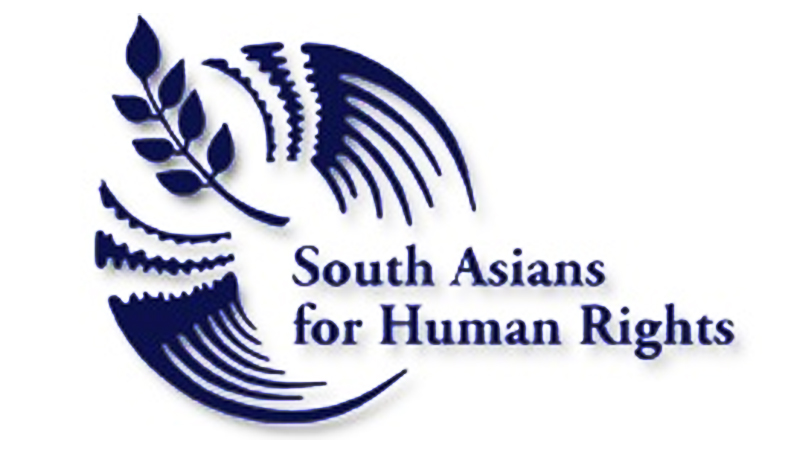HRCP moot proposes roadmap for democratic Pakistan
Islamabad, August 12: Pakistan’s survival depends on strengthening the democratic process so as to remove the tensions and imbalance in civil and military relations and ensure that all institutions of the state play their role in the well being of the people within their parameters. This was the consensus at a consultation organized by the Human Rights Commission of Pakistan (HRCP) here.
The consultation on ‘civil-military relations and their impact on human rights’ was attended by politicians from across the political spectrum, former military officers, representatives of civil society, noted academics and journalists.
The assembly passed the following resolution at the conclusion of the consultation.
- Pakistan’s survival lies in strengthening the democratic process and it cannot flourish without the existence of a strong parliament or an independent judiciary. The country needs both. However, recent events are disturbing as the authority of the parliament has been undermined and its lawmaking power challenged. All laws that are in contravention of fundamental rights ought to be struck down by the courts but they cannot put restrictions on the parliament to enact laws.
- An independent judiciary and an efficient system of administration of justice is the backbone to any democratic structure. In order to further strengthen the judiciary’s independent character, political parties should consider the establishment of a Constitutional Court as promised in the Charter of Democracy that was signed by the two major political parties of the country. After the adoption of the 18th Amendment and the creation of new relationships between the federation and the units, establishment of such a court has become imminent.
- There is an urgent need for ensuring transparency in revenue collection and use of resources. In this regard all institutions of the State, including the various branches of the executive, the military, the intelligence agencies as well as the judiciary, should be made accountable.
- The military’s service to the country cannot be denied. It has hugely suffered in the last few years while fighting terrorism but it must maintain its professionalism, among other things, by winding up intelligence work of political nature and its business enterprises which are not only an unnecessary burden on the economy but also distract the military from its professional duties.
- Considerable damage is being caused by the gap in the understanding between military commanders on one side and civilian authorities and civil society on the other regarding the direction that the country ought to take. It is essential that the two sides engage in mutual discussions and find ways to move forward.
- The situation in Balochistan is extremely critical and offers the most grave example of imbalance in civil-military relations and their impact on human rights. It is vital that political leadership of all shades addresses this critical situation seriously and with due diligence and sobriety.
- For harmonious civil and military relationship and promotion of human rights, it is absolutely essential that the political parties contribute to the growth of democratic culture by democratising their own party apparatus.
- It is vital that political parties address human rights issues more seriously, especially enforced disappearances, oppressive laws in FATA and PATA, and the widespread acceptance of torture. The political parties must take a holistic view of parliament’s sovereign rights by giving priority to the people’s needs and aspirations, addressing foreign policy issues, and accepting ownership of and responsibility for all policies and decisions.
- Legal cells may be created in all political parties so that they can better perform their legislative responsibilities and enable the parties to take their task more seriously.
- All political parties must ensure that the forthcoming elections are held in a free atmosphere and that no agencies, not even security and intelligence services, interfere in this process. It is equally important that political parties do not invite unnecessary interference of the judiciary in the election process. All political parties should pledge that women will not be restrained from exercising their right to vote and the parties will not be part of any scheme to deprive women of their right to franchise.
- The state, the political parties and civil society should have zero tolerance for any form of militancy. No one should remain silent where it becomes evident that any state functionaries or political elements are throwing up, protecting or colluding with militant elements.
- The practice of doling out discretionary funds to parliamentarians should cease. This has corrupted politics and given rise to nepotism. The politics of giving plots to bureaucrats and judiciary must also be discontinued.
- It is regrettable that Mr. Farhatullah Babar’s bill on the need for regulating the functioning of intelligence agencies that was submitted to the Senate had been withdrawn. The measures visualized in the bill need to be debated by political parties and consensus developed on regulatory frameworks which the state needs more urgently than ever. Equally important is the establishment of an efficient accountability mechanism which can oversee the working of all institutions of the state.
- It is necessary for the development of healthy political traditions that the political parties that have in the past supported dictatorial regimes should own their mistakes and offer apologies to the people.
- The adoption of the 18th and the 19th constitutional amendments does not mean that the process of constitutional amendment has been exhausted. Constitutional reform should be continued until the 1973 constitution is revived in its original form. There is need to delete articles 62 and 63 inserted by General Zia-ul-Haq, which allowed decisions to be taken on subjective considerations. It is also necessary to streamline the provisions/regime of the Supreme Judicial Council and continue the process of recognising more rights of the people as fundamental.
- A parliamentary committee on trade should be established to make the parliamentarians more aware of and more involved in dealing with the economic challenges facing Pakistan.
At suggestions from the audience the conference agreed that all vacancies of judges in all high courts should be filled on merit.
While the resolution was supported unanimously by participants, the representative of the Jamaat-e-Islami exercised his right to dissent from the clauses referring to the judiciary and the demand for deletion of articles 62 and 63.
Zohra Yusuf
Chairperson
Category: English






